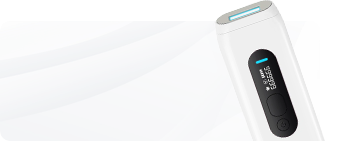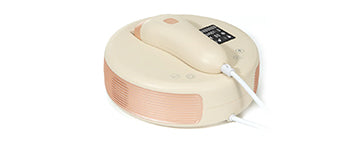It's commonly said that waxing gradually thins hair by pulling it from the roots, weakening the follicles and leading to finer regrowth. Plucking works similarly.
This leads to the belief that persistent plucking might eventually stop hair growth. However, this notion is contentious, with some dismissing it as unfounded. So, what's your stance? Let's clear up this matter and delve into whether plucking truly halts hair growth. If so, how many plucking sessions does it take to achieve this?
Let's dive into the details and address all your questions regarding plucking and its impact on hair growth.
- Is Plucking Capable of Removing Hair from its Roots?
Plucking is favored for hair removal since it effectively removes the entire hair strand, the root included. When performed correctly and when the hair is actively growing, this technique ensures that the hair is completely extracted from the follicle.
However, the technique's effectiveness depends on its precision. A pluck that breaks the hair without fully extracting it may leave the root behind, leading to quicker regrowth. Properly executed plucking can lead to an extended period without hair, approximately one and a half months, as the follicle requires time to produce new hair.
- How Often Must You Pluck Hair to Halt Growth Permanently?
There is no limit to how often you can pluck hair. Each plucking session may delay regrowth temporarily or slightly, but hair eventually resumes growth as the follicle starts a new growth cycle.
Therefore, repeatedly plucking won't permanently stop hair growth. If your goal is to achieve a permanently hair-free state, you might need to explore alternative hair removal methods, as plucking alone typically won't suffice.
- Is Plucking Effective at Halting Hair Growth?
While plucking can temporarily delay hair regrowth and even cause hair to grow thinner due to follicle distress, it's essential to understand that it doesn't offer a permanent solution. Plucking removes the hair strand and root but doesn't destroy the hair follicle or put it into a dormant phase. Therefore, hair inevitably regrows from the remaining part of the follicle, known as the bulb. This means that despite frequent plucking, hair will continue to grow back, leading many to seek alternative, more permanent hair removal methods.
- What Alternative Approaches Can Be Adopted for Temporary Hair Removal?
Given the time it takes and potential side effects, there may be better methods than plucking for hair removal. Since it doesn't halt hair growth permanently, consider alternative hair removal methods that are quicker and pose fewer risks.
Shaving
Shaving is a quick and easy method suitable for both the face (which also acts as a dermaplaning technique) and the body, offering the added benefit of exfoliating the skin. While it leads to rapid hair regrowth, requiring maintenance every 3-7 days, one downside includes the risk of razor burns and the appearance of thicker hair due to the blunt cut of the hair shaft.
Waxing
Waxing offers options for all body areas, including the face, such as hard wax, soft wax, card wax, and wax rollers. It's a more long-term solution than shaving, as it slows hair growth and makes hair finer. Despite being painful, it's a widely used method due to its effectiveness and smoother results.
Hair Removal Creams
These creams provide a painless hair removal alternative to tweezing, targeting hair protein structure and dissolving it for easy removal. While they don't reach the hair roots and hair may regrow in a week or two, they're favored for their ease of use. However, it's essential to be cautious of potential skin reactions or rashes, as these products contain chemicals that irritate sensitive skin.
- What are the Permanent Hair Removal Techniques Available?
You may seek a hair removal solution that offers lasting results, especially if plucking and other temporary methods fail to meet your expectations. If that's the case, you're in luck, as you can explore several alternatives.
Of all the techniques intended to suspend hair follicle activity temporarily, IPL (Intense Pulsed Light) hair removal gadgets are particularly noted for their cost-efficiency, user-friendliness, and high performance. For instance, the Naisigoo The Shiner IPL Hair Removal Handset is highly regarded as an exceptional choice for those looking to remove hair at home.
These devices achieve their purpose by damaging hair follicles, effectively incapacitating them. This leads to a period during which the skin remains free of hair, lasting until the follicles recover and regenerate, a period that can last six months or even more.
Laser hair removal operates similarly to IPL, utilizing light that transforms into heat energy to effectively target and destroy the hair follicle, thereby providing prolonged hair reduction.
However, laser treatments are typically conducted in professional settings such as salons, clinics, or spas, distinguishing them from at-home IPL procedures. Additionally, the laser's intensity surpasses IPL's, necessitating a more cautious approach during the procedure.
Electrolysis
While both laser and IPL offer enduring hair reduction, they don't guarantee permanent removal. In contrast, electrolysis is the only method to stop hair regrowth permanently.
This technique involves inserting a fine probe into each hair follicle and delivering a small electric current to destroy the follicle. Despite its effectiveness in permanently stopping hair growth, electrolysis is less commonly chosen due to its intricate procedure and the intense pain it can cause during treatment.
Conclusion
In conclusion, while many of us prefer simple methods like plucking to remove unwanted hair from our bodies and faces, it's essential to recognize that such methods don't always yield the desired results. Unfortunately, plucking does not permanently stop hair growth, even if it removes the hair root and is done frequently.
However, there's no need for concern. There are alternative, more effective hair removal techniques that target and destroy hair follicles, inhibiting regrowth. These options include IPL, laser treatments, and electrolysis. In the meantime, various temporary hair removal methods are also available for those seeking immediate results to keep unwanted hair at bay.






